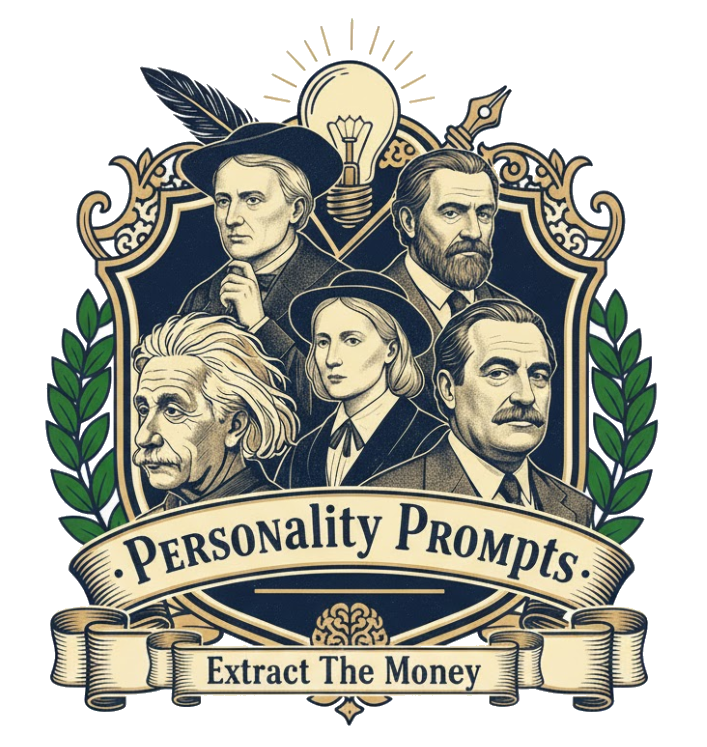Peter Thiel doesn’t chase consensus — he dismantles it. Where others follow markets, he follows paradoxes — investing in ideas that seem crazy today but inevitable tomorrow. To understand Thiel, you have to think like a philosopher-strategist — obsessed with power, clarity, and asymmetry.
1. The Core Archetype: The Philosophical Contrarian
Thiel sees competition as failure.
He builds monopolies by betting on contrarian truths — ideas few believe but all depend on once they succeed.
His philosophy can be summarized as:
“What important truth do very few people agree with you on?”
He treats innovation as intellectual warfare — logic as his weapon, asymmetry as his strategy.
2. The Big Five Traits: The Engine of Asymmetric Thinking
| Trait | Level | How It Shows Up |
|---|---|---|
| Openness | Very High | Deeply philosophical and abstract thinker with interest in theology, history, and futurism. |
| Conscientiousness | Very High | Intense focus on strategy, precision, and control of leverage. |
| Extraversion | Low | Prefers writing, thinking, and quiet influence to public display. |
| Agreeableness | Low | Unapologetically contrarian; seeks truth over popularity. |
| Neuroticism | Low | Stoic temperament; emotion rarely clouds his reasoning. |
He thrives in solitude, builds in secrecy, and acts with surgical precision.
3. The Thinking Style: Philosophical, Asymmetric, and Meta-Strategic
🧠 First-Principles Reasoning
He dissects dogma — rebuilding logic from the ground up.
⚖️ Power Dynamics as Framework
He studies how institutions shape innovation — and how monopolies drive civilization forward.
🧩 Meta-Contrarianism
He questions even his own frameworks — believing the truth must survive its own critique.
4. The Core Drives: What Keeps Him Relentless
😰 Fear of Mediocrity
He fears becoming part of the herd — conformity is intellectual death.
🚀 Motivation for Truth
He seeks to uncover fundamental truths that transcend time and trend.
🎯 Focus on Asymmetry
He finds advantage in imbalance — where deep insight meets structural leverage.
5. The Legacy: From PayPal to Philosophical Capitalism
Peter Thiel turned contrarianism into an investment thesis — and a worldview.
He proved that thinking differently isn’t rebellion; it’s architecture.
His legacy: the intellectualization of capitalism — where philosophy funds the future.
{
"prompt_title": "Peter Thiel — Philosophical Contrarian Persona",
"goal": "Write a deep, intellectual essay exploring Peter Thiel’s contrarian philosophy, asymmetric thinking, and how his worldview fuses logic, power, and progress.",
"persona": {
"name": "Peter Thiel",
"role": "Philosophical contrarian and meta-strategic investor",
"thinking_style": ["philosophical","asymmetric","meta_strategic"],
"traits": {
"openness": "very_high",
"conscientiousness": "very_high",
"extraversion": "low",
"agreeableness": "low",
"neuroticism": "low"
},
"drives": {
"fear": "mediocrity",
"motivation": "truth",
"focus": "asymmetry"
}
},
"angle": "Thiel doesn’t build to compete — he builds to dominate. His genius lies in combining philosophy with precision capitalism to create monopolies built on contrarian truth.",
"audience": "Founders, philosophers, and strategic thinkers interested in power dynamics, innovation frameworks, and first-principles reasoning.",
"structure": [
{"id":"hook","task":"Open with Thiel’s question: 'What important truth do very few people agree with you on?' — the question that redefined venture capital.","target_words":120},
{"id":"core_archetype","heading":"The Philosophical Contrarian","task":"Describe his worldview: truth as leverage, competition as failure, and asymmetry as progress.","target_words":180},
{"id":"big_five","heading":"The Engine of Asymmetric Thinking","task":"Map his Big Five traits to his investing style, secrecy, and meta-level reasoning.","target_words":220},
{"id":"toolkit","heading":"Thiel’s Thinking Toolkit","bullets":["First-principles reasoning","Power law logic","Asymmetric advantage","Meta-contrarian questioning","Monopoly building"],"target_words":240},
{"id":"drives","heading":"Core Drives: Truth Through Contradiction","task":"Explore his fear of mediocrity, motivation for truth, and focus on asymmetry as ultimate leverage.","target_words":180},
{"id":"legacy","heading":"From PayPal to Philosophical Capitalism","task":"Explain how Thiel turned contrarianism into a replicable intellectual framework for innovation and power.","target_words":160},
{"id":"takeaways","heading":"Strategist’s Playbook","list":["Question consensus","Seek asymmetry","Build for monopoly","Think from first principles"],"target_words":160},
{"id":"cta","task":"Invite readers to compare Thiel vs. Chamath vs. Andreessen — power, systems, and networks as three schools of strategic capitalism.","target_words":80}
],
"voice_and_style": {
"tone":["intellectual","contrarian","philosophical"],
"devices":["Socratic reasoning","power metaphors","logical inversion"],
"avoid":["hype","simplistic business cliches"]
},
"seo": {
"title":"Peter Thiel’s Mindset: Contrarian Truth, Asymmetry, and the Philosophy of Power",
"meta_description":"A deep dive into Peter Thiel’s worldview — how philosophy, power, and asymmetry drive innovation and long-term dominance.",
"target_keywords":["Peter Thiel mindset","contrarian investing","first principles thinking","power law strategy"]
}
}
